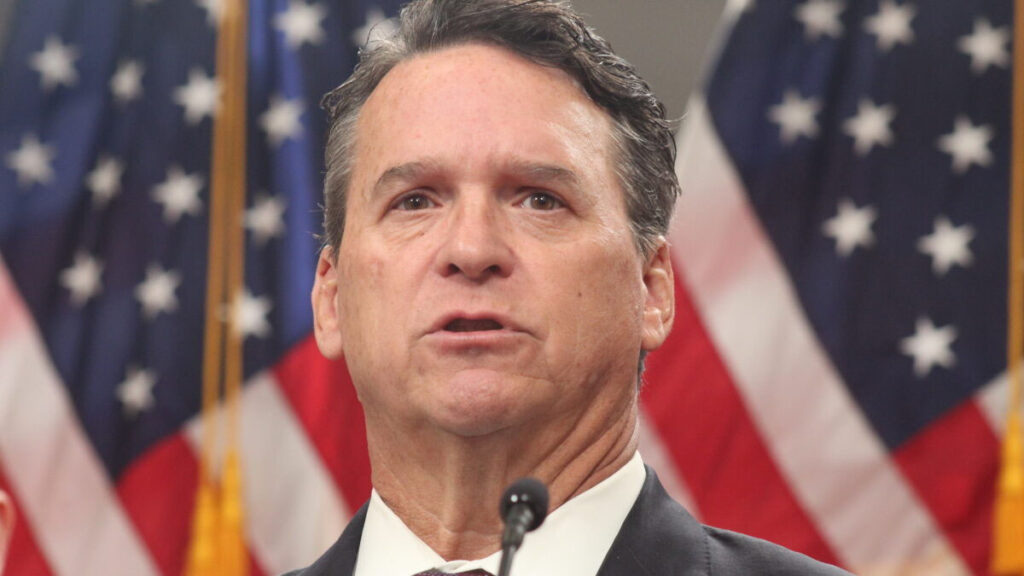Jack Hogan//March 19, 2025//


ANNAPOLIS — The legislature’s top-ranking Republican on Wednesday claimed that Democrats are considering a 3% sales tax on information technology and data services as part of a more tailored approach to generating much-needed revenue from business services.
The claim, from Senate Minority Leader Steve Hershey, comes a couple of days after Gov. Wes Moore stated that a “broad” tax on business-to-business services was off the negotiating table.
Top budget negotiators in the House and Senate declined to comment on Hershey’s claim. Democrats have for the most part kept their cards close even in private conversations, and on Wednesday they mostly reiterated that nothing has been finalized in negotiations between the chambers and between the legislature and the Moore administration.
After fierce backlash from company executives, business owners, advocacy organizations and industry groups to a proposal that would have levied a 2.5% tax on business-to-business services, Moore said Monday that such a “broad” tax wouldn’t be part of the final budget.
There didn’t appear to be any agreement about what additional services the state should begin taxing or at what rate, just that the proposal shouldn’t be solely on services between businesses.
Hershey, apparently looking to offer some clarity, said in a statement that Moore is “trying to spin this as a win, telling business owners that his definition of not supporting a broad business-to-business service tax now means he’s backing a bill that narrows the tax and targets consulting services in the IT and data industries.”
A spokesperson for the governor declined to comment on Hershey’s specific claim but said the governor is “continuing to work with the state legislature, local leaders, and all partners involved to ensure that we pass a budget that will give middle-class families a break, grow our economy, and protect and invest in our people.”
The official said that taxing more services would modernize the state’s tax code, which has needed an upgrade as the state’s economy has, over recent decades, become far more reliant on services than goods.
Hershey said that taxing IT and data services would directly target the industries that Moore has highlighted as future drivers of economic growth in Maryland, including IT, cybersecurity and quantum computing.
The Maryland Tech Council, the state’s largest technology and life sciences trade association, opposed the legislature’s initial 2.5% tax on business-to-business services, and it’s not likely the organization would view a 3% tax on IT and data services in a more favorable light.
Tech Council CEO Kelly Schulz, who was the state’s labor secretary and then commerce secretary under former Republican Gov. Larry Hogan, declined through a spokesperson to address Hershey’s specific claims but said it was her understanding that negotiations about the services tax were ongoing.
“The Maryland Tech Council and its members have been outspoken about our strong opposition to business-to-business tax increases, and will continue to make that point known to policymakers,” Schulz said in a statement.
Maryland is facing a roughly $3.3 billion budget deficit that is projected to double in the coming years. Democrats in the legislature pitched the tax on business-to-business services to avoid drastic cuts to vital government services and as a counter to the governor’s tax reform plan.
Under Democrat’s initial bill, taxes paid on data and IT services, system and application software publishing, and consulting services would have generated nearly $625 million next fiscal year, comprising about two-thirds of the $944 million in projected revenue under the proposal, according to state analysts.
